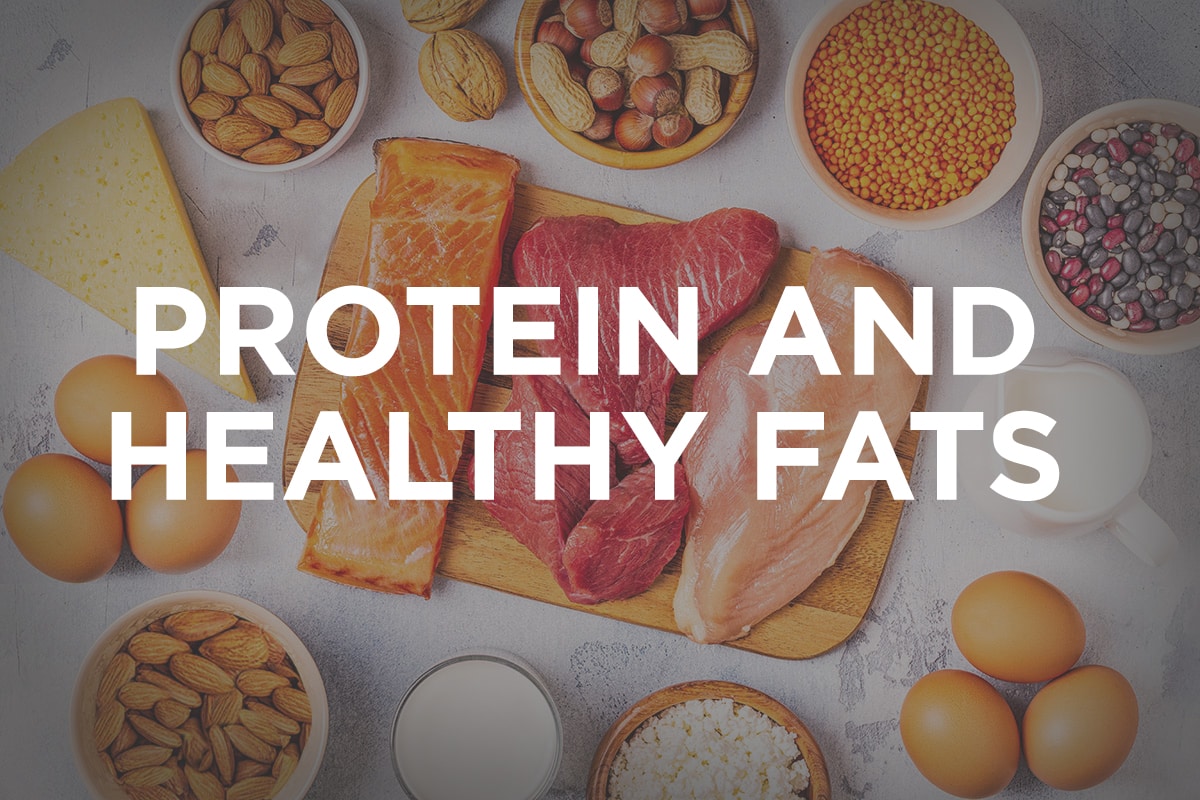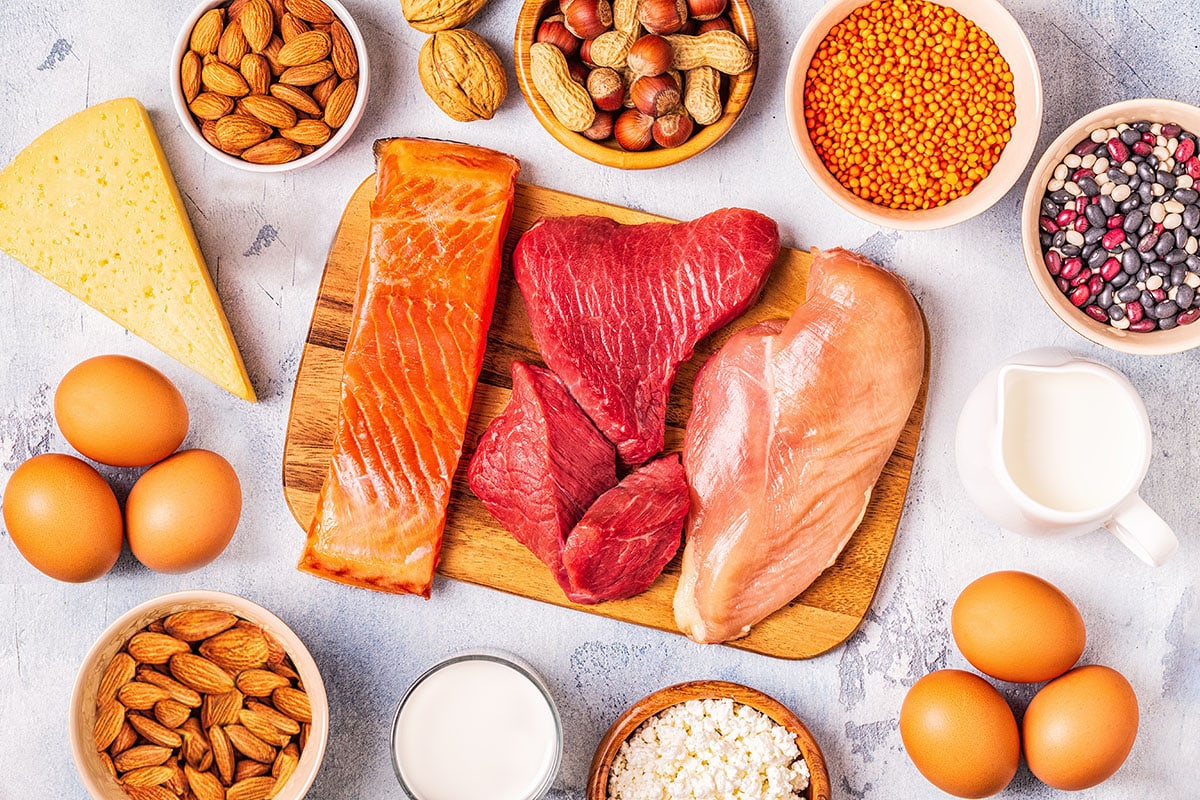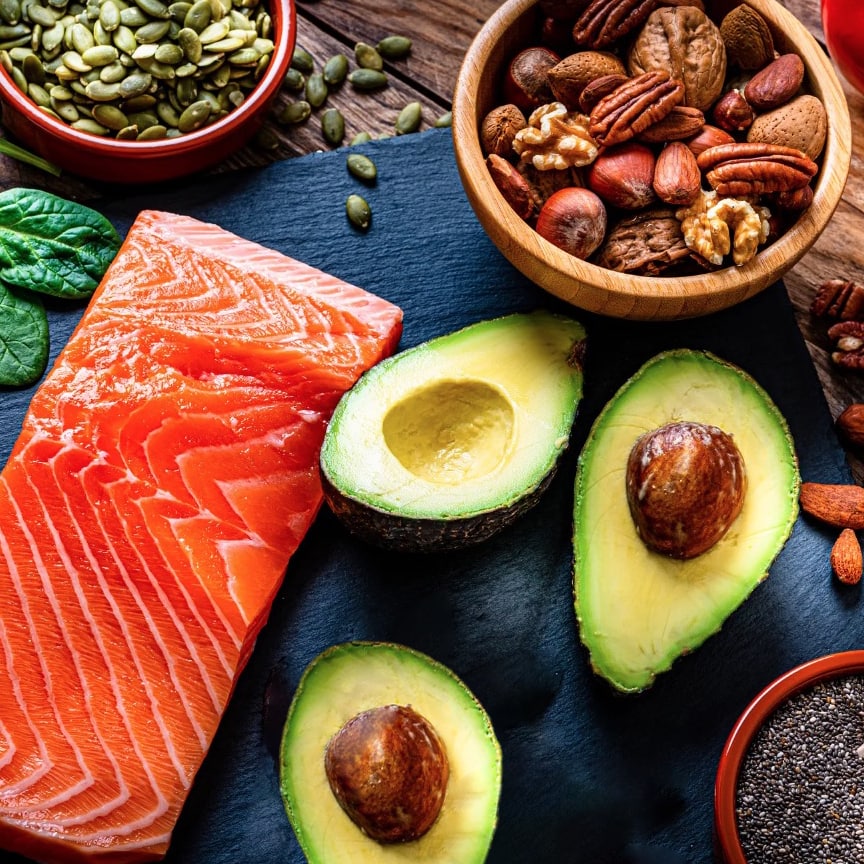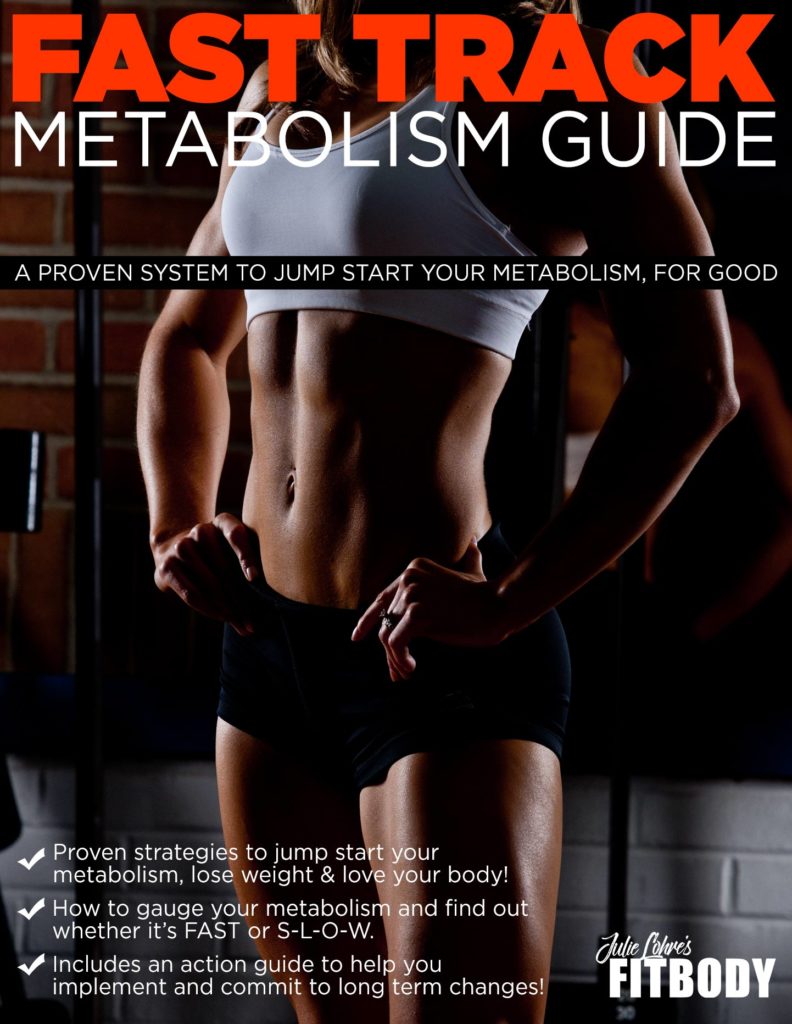Focus on Protein and Healthy Fats, Not Just Calories and Carbs, for a Fit Body After 40

Most women know that nutrition is the key to staying or getting the fit body they want, but often, we place too much emphasis on calories and carbs while ignoring protein and healthy fats. I work specifically with women in their fifties and sixties who want to lose belly fat and achieve a more slender, toned body. More than that, though, these women know that exercise and balanced eating are the keys to staying healthy and active in the future, but with so many fad diets out there, it can be difficult to know what to do. Should you go keto with super low carbs (and no energy!?!), or should you cut calories so low that you walk around hangry all the time? While overall caloric intake and calories are important, the women I see who have the best success, especially in peri-menopause or menopause, are those that also focus on balancing protein and healthy fats into their day appropriately instead of narrowly focusing on ditching carbs or cutting calories. Here are three reasons women need to pay attention to the protein and healthy fats in their day instead of dieting and counting carbs or calories exclusively.
First, protein is a powerhouse for maintaining and growing lean muscle. As an essential building block, women who value definition and tone need to include enough protein in their diet to help them hold on to muscle which can decline over 50. Dietary protein gives the body the needed amino acids, especially the branch chain amino acids (BCAA’s) leucine, isoleucine, and valine important in muscle protein synthesis. Protein consumption stimulates muscle protein synthesis, which is the process by which new muscle proteins are formed. This helps repair and rebuild muscle tissue that has been damaged during exercise.
Consuming adequate amounts of protein can help increase muscle mass, which is important for maintaining muscle strength and function. Since lean mass naturally decreases as we get older, it is critical to eat enough protein as we age. Protein consumption also has been shown to reduce muscle breakdown, which can help preserve muscle mass during periods of calorie restriction or weight loss. Since many women over 40 strive to lose weight, this is a really important point! Additionally, consuming protein after exercise can help support muscle recovery and reduce muscle soreness. This is because the amino acids in protein help repair damaged muscle tissue and reduce inflammation in the muscles.

If you are looking for the best sources of protein, here are some of my favorites:
- Lean meats: Chicken, turkey, lean beef, and pork are all good sources of protein.
- Fish: Fish such as salmon, tuna, and sardines are excellent sources of protein and also provide omega-3 fatty acids, which can help with heart health and inflammation (spoiler alert… see below).
- Eggs: Eggs are a great source of protein and also contain many essential vitamins and minerals.
- Dairy: Milk, cheese, and yogurt are all good sources of protein, and many dairy products are also fortified with vitamin D and calcium.
- Legumes: Beans, lentils, and chickpeas are all good sources of protein and also contain fiber, which can help with digestion and blood sugar control.
- Nuts and seeds: Almonds, peanuts, and sunflower seeds are all good sources of protein and also provide healthy fats and fiber.
- Soy: Soy products such as tofu, edamame, and tempeh are good sources of protein and may also help with reducing the risk of certain health conditions.
- Protein powder like my favorite UMP Protein from Beverly International will help you get in high quality protein while giving your sweet tooth something to be happy about. Tried and hated other protein powders before… UMP is different! Literally the best tasting protein powder out there, I have used it almost every day for more than 10 years now and attribute much of my current conditioning to having UMP in my life!

In addition to protein, healthy fats, particularly omega-3 fatty acids, are critical for hormone production and regulation, so eating healthy fats will support a balance of hormones in a woman’s body. From reducing inflammation which helps alleviate night sweats and hot flashes, to balancing estrogen, which can decrease mood swings and vaginal dryness, to improving insulin sensitivity that helps avoid high blood sugar, consuming enough omega-3 fatty acids can help support hormone balance and actually decrease the symptoms commonly experienced by women in menopause.
There are tons of foods that you excellent sources of Omega-3 fatty acids in particular:
- Fatty fish: Fatty fish such as salmon, tuna, mackerel, and sardines are some of the best sources of omega-3s. They contain high amounts of both EPA and DHA, which are the two main types of omega-3s.
- Nuts and seeds: Walnuts, chia seeds, flaxseeds, and hemp seeds are all good sources of omega-3s. They contain a type of omega-3 called alpha-linolenic acid (ALA), which the body can convert into EPA and DHA.
- Plant oils: Oils such as flaxseed oil, canola oil, and soybean oil are good sources of ALA. They can be used in cooking or added to salads or smoothies.
- Fortified foods: Some foods are fortified with omega-3s, such as certain brands of eggs, yogurt, and milk. These products are enriched with EPA and DHA, making them a convenient way to increase omega-3 intake.
- Supplements: Omega-3 supplements, like my favorite EFA Gold from Beverly International are also available in the form of fish oil capsules or algae-based supplements. They can be a good option for people who don’t consume enough omega-3s through their diet.
No conversation about the benefits of dietary protein and healthy fats would be complete without mention of their ability to help control food cravings and hunger levels. When you pay attention to the protein and healthy fats in your nutrition plan, you will feel fuller and more satisfied with your food. These foods are highly satiating because they trigger the body to release hormones that signal your brain that you are full. Unlike high carbohydrate foods that digest quickly and spike your blood sugar, allowing cravings for more sugary and starchy foods shortly after eating, protein and healthy fats are more complex molecules that take longer to digest, leaving you feeling fuller.
Get your FREE Copy Now!

